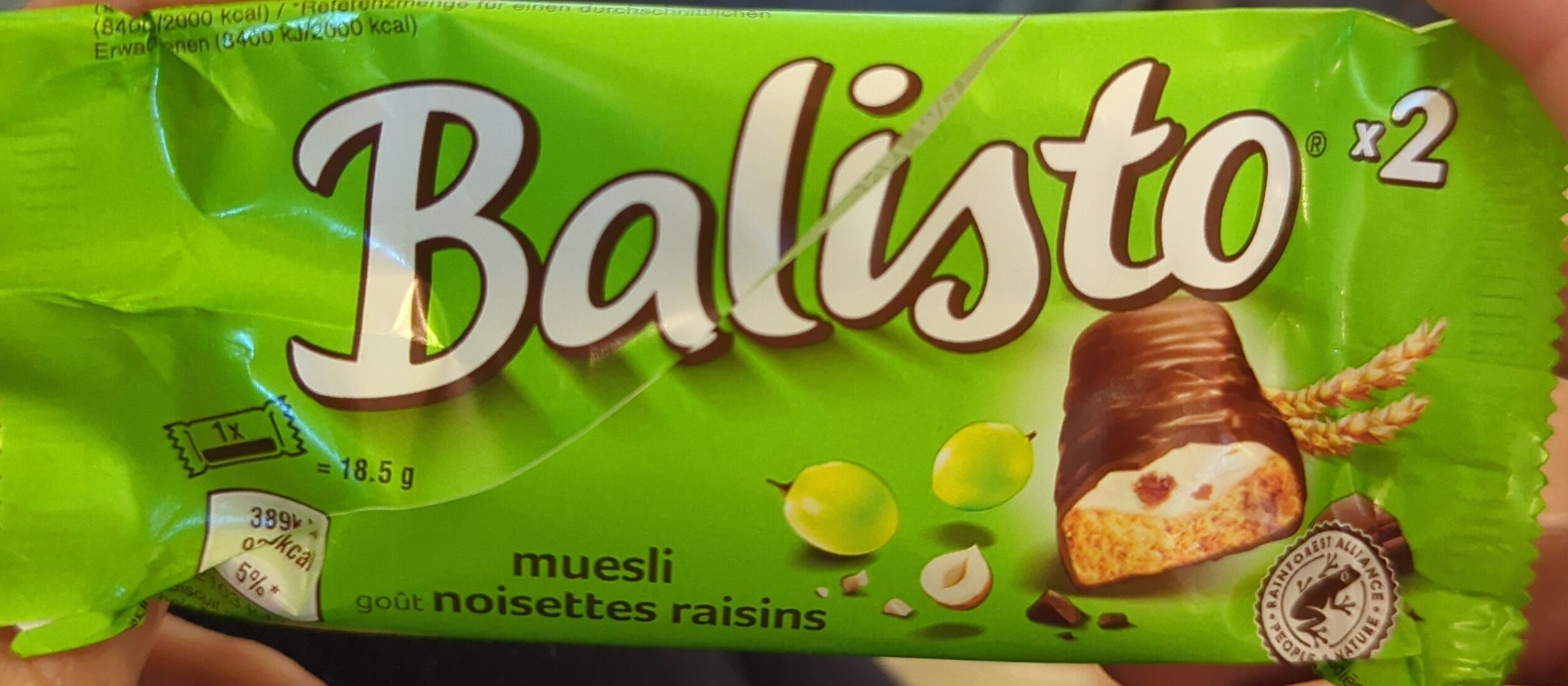Balisto muesli - 37 g
This product page is not complete. You can help to complete it by editing it and adding more data from the photos we have, or by taking more photos using the app for Android or iPhone/iPad. Thank you!
×
Barcode: 5000159418546 (EAN / EAN-13)
Common name: Barres chocolatées
Quantity: 37 g
Packaging: Plastic, Bag, fr:X 2
Categories: Snacks, Sweet snacks, Cocoa and its products, Confectioneries, Bars, Chocolate candies, Bars-covered-with-chocolate
Labels, certifications, awards:
Sustainable farming, Green Dot, Made in Germany, UTZ Certified

Countries where sold: Belgium, France, Switzerland
Matching with your preferences
Environment
Packaging
Transportation
Threatened species
Labels
Report a problem
Data sources
Product added on by teolemon
Last edit of product page on by raybb.
Product page also edited by foodrepo, julienm, kiliweb, lenny5156, moon-rabbit, naruyoko, openfoodfacts-contributors, packbot, quechoisir, roboto-app, scanbot, tacinte, yuka.R0tGZENJa2orZm80cDlzVXBCTHM4UDExeFlXNFJIK01KY1ZCSVE9PQ, yuka.U0lFS1Nwd0lxK01SZ2ZNRzRqRGNwZjlPMTdxU1kyQ09jTTR6SVE9PQ, yuka.U29kZU00c3h1UE5Rd1BNVTJDdjYrT2xVMWJLV1RWT3BFOVFhSVE9PQ, yuka.V3I0RUhZQU1ndVZhdVBJWTJqZmJvb04rNHE2M1YySzVGczBMSVE9PQ, yuka.ZTdzSlM2RUQvTmNEdE1VVndrTDI1SWh2NWJDcllXU0ZkN05KSUE9PQ, yuka.sY2b0xO6T85zoF3NwEKvlmluCuL5gx_jJRvQshWAxeWsdcLMZdtzxqSrY6s, yukafix.









